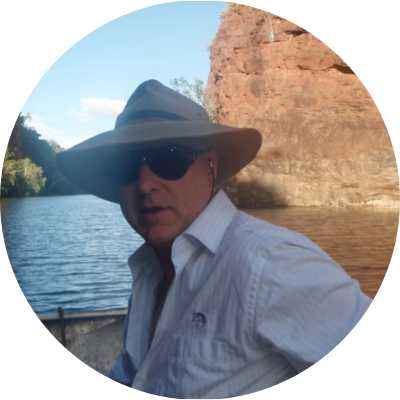
Our Executive Council
Jane Hutchinson (Chair)
Jane is a leader in nature conservation with over 20+ years as an Executive and Non-Executive Director of multiple and varied conservation organisations including The Nature Conservancy Australia Program, Australian Land Conservation Alliance and Tasmanian Land Conservancy.
Jane has a combined Bachelor of Science and Laws degree with honours in Law from the University of Tasmania.
Jane received a Barbara Thomas Fellowship in 2014, Harvard Club of Australia Fellowship in 2017 and was awarded Tasmanian Australian of the Year 2016 for her contribution to nature conservation.
Peter Cochrane (Blue Mountains World Heritage Institute)
Peter retired in 2013 after fourteen years as Director of National Parks for the Australian Government. He has thirty years of senior government and private sector experience including university research, policy advice, program delivery, mining and natural resource sectors, and nature conservation.
Peter is a Councillor of the International Union for Conservation of Nature, and a member of the IUCN Global Green List Committee and the World Commission on Protected Areas.
Peter chairs the Sydney Institute of Marine Science (SIMS), the Blue Mountains World Heritage Institute (BMWHI), and Australia’s Tropical Herbarium.
Peter has a BSc and Masters of Public Policy from ANU, is a member of the Australian Institute of Company Directors and the Resolution Institute, and was appointed as an Adjunct Professor in the School of Biological, Earth and Environmental Sciences, Faculty of Science at UNSW in July 2020.
James Hattam (Tasmania Land Conservancy)
James is the Chief Executive Officer for the Tasmanian Land Conservancy; his passion is centred on nature and connecting people to the natural world through shared experiences, storytelling and community involvement. James is a Conservation Ecologist with over fifteen years’ experience working in the conservation sector, with government and not-for-profit organisations in Victoria and Tasmania.
James’ experiences include; implementation and application of conservation covenants and other agreements, philanthropic programs, marketing, communications, community engagement and not-for-profit governance.
James is member of the World Commission on Protected Areas, one of the six expert Commissions of the International Union for Conservation of Nature. The Commission is the world's premier network of protected area expertise with 3,000 members, spanning 140 countries.
James is an active contributor to the Young Professionals Network of the Commission and its Oceania regional focal point. This collective forum brings together professionals associated with protected areas and conservation in diverse capacities from around the world.
Dr Vanessa Adams (Academics Programs Committee, Chair)
Dr Vanessa Adams is a Senior Lecturer in Conservation and Planning at the University of Tasmania. She has been engaged with the Protected Areas Collaboration in various roles since 2018 and is passionate about research and learning that improves protected area establishment and management.
In her teaching roles at University of Tasmania she coordinates the Master of Protected Area Management and Governance and associated Graduate Certificate and Professional honours and teaches the core protected area units.
Her research focuses on modelling dynamic social-ecological systems to inform conservation decisions that improve ecosystems and the communities they support. She has worked in roles ranging from actuarial analyst for global consulting firm Mercer HR to research scientist at universities.
She spent a year as a Fulbright scholar conducting research at University of Queensland in 2004 and completed her PhD at James Cook University in 2011. Prior to coming to Tasmania in 2018, she worked as a researcher and lecturer at universities including University of Queensland and Macquarie University. Vanessa regularly partners with relevant government agencies and NGOs to develop solutions for a range of conservation problems.
Clive Cook (Protected Areas Practitioners Committee, Chair)
Clive started work as a ranger in Tasmania, New Zealand and Kakadu National Park. Through his executive leadership roles in Great Barrier Reef Marine Park Authority and the Queensland National Parks and Wildlife Service, Clive delivered significant outcomes in protected areas and wildlife management at local, state, Commonwealth and international jurisdictions.
Following his distinguished executive leadership career, Clive coordinated the Protected Area Management Course of study offered by the School of Earth and Environmental Sciences at the University of Queensland. Clive also provided assistance to the United Nations, Food and Agriculture Organisation in Fiji, contributing to a program designed for Biodiversity Conservation and Protected Area Management practitioners. Clive currently runs his own consultancy business.
Clive holds a degree in Urban and Regional Planning and majored in natural resource management and environmental law. Clive is a Certified Environmental Practitioner and Member of the Environment Institute of Australia and New Zealand and also a member of the IUCN and the WCPA. He is also a Justice of the Peace (Qualified) and member of the Royal Historical Society of Queensland and the Queensland Maritime Museum. Clive also serves on the Skyrail Rainforest Foundation Board.
Clive’s acute interest is in the recognition, development and promotion of excellence in governance and management of protected areas. Clive believes that the PAC is an excellent platform to shape the knowledge, skills and professional development needed to sustain protected areas into the future.
Eddie Game (The Nature Conservancy)
Eddie Game is the Lead Scientist & Director of Conservation for The Nature Conservancy’s Asia Pacific region, responsible for ensuring that the Conservancy remains a world leader in making science-based conservation decisions. Eddie has had the privilege of working on conservation in over 20 countries, helping to apply innovative methods to projects as diverse as community protected areas in Melanesia, grazing management in northern Kenya, snow leopard conservation in Mongolia, forestry in Indonesia, and catchment restoration in Colombia. Eddie’s work also focuses on how we measure and report on the impact of our work, and the role technology can play in helping do so. Eddie and his team have been enthusiastic adopters of ecoacoustics, developing partnerships that bring together cutting-edge academic research with real-world applications in countries including, Papua New Guinea, Indonesia, Myanmar, Australia, and Gabon.
He has published more than 75 papers on aspects of conservation science and climate change, and his first book, Conservation Planning: Informed Decisions for a Healthier Planet, co-authored with Craig Groves, was published in 2015. Eddie is currently Editor-in-Chief of the leading conservation journal Conservation Letters. For his work on how climate change data can be used in decision making he was the recipient of the Great Barrier Reef Foundation’s inaugural prize for innovative concepts to conserve the reef in the face of climate change. Eddie received his PhD in marine conservation and decision science from the University of Queensland, and holds an adjunct faculty position there.







